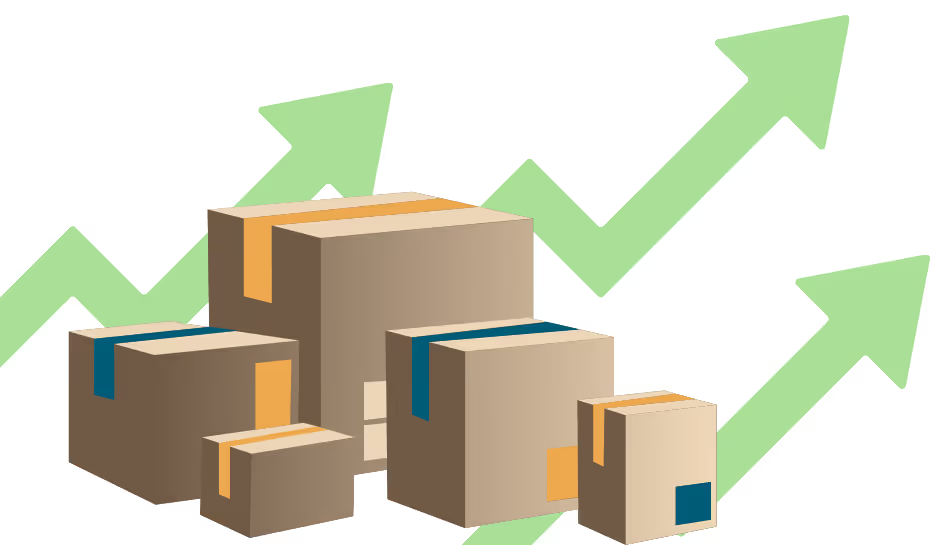
In today’s competitive business world, efficient logistics can make the difference between growing profits and shrinking margins. Companies that rely on manual processes or outdated systems often face high costs, frequent delays, and poor visibility in their supply chains. Software for logistics management can be useful in this situation. By streamlining operations, automating tasks, and improving decision-making, businesses can cut expenses while maximizing returns. Let’s look at how logistics software reduces expenses and drives profitability.
Automating Logistics to Reduce Costs and Increase Profits
One of the biggest advantages of logistics software is automation. Manual paperwork, phone calls, and spreadsheets are slow and prone to error. With automating logistics to reduce costs and increase profits, businesses can replace these tasks with digital workflows.
For example:
- Orders can be automatically routed to the nearest warehouse or transport partner.
- Invoices and payments can be generated instantly with fewer human errors.
- Real-time tracking eliminates the need for repeated status updates.
This level of automation reduces the time and money spent on repetitive tasks, allowing teams to focus on value-added activities.
Optimizing Routes for Cost Efficiency
Transportation is one of the biggest expenses in logistics. Smart software helps optimize logistics cost efficiency by analyzing delivery routes, fuel usage, and traffic conditions. By selecting the shortest and fastest routes, businesses save on fuel costs, driver hours, and vehicle wear-and-tear.
Additionally, load optimization features ensure trucks are filled efficiently, reducing the number of trips required. Over time, these savings significantly boost profit margins.
Inventory Control and Reduced Storage Costs
Poor inventory management leads to either overstocking, which increases storage costs, or stockouts, which cause lost sales. Logistics software provides real-time visibility into inventory across warehouses. By tracking demand patterns, companies can maintain the right stock levels, avoid wastage, and lower storage expenses.
This balance directly impacts profitability, as businesses no longer tie up capital in excess inventory or miss opportunities due to shortages.
Improved Vendor and Carrier Management
Businesses often work with multiple vendors, suppliers, and logistics partners. Without centralized management, this leads to confusion and hidden costs. Logistics software integrates these relationships, helping businesses track performance, negotiate better rates, and ensure timely payments.
Stronger vendor and carrier management translates to more reliable service and reduced costs, ultimately improving the bottom line.
Real-Time Data for Smarter Decisions
Data-driven decisions are another key benefit. With real-time dashboards and reporting, businesses can monitor KPIs such as delivery times, costs per shipment, and customer satisfaction. This allows managers to identify inefficiencies quickly and take corrective action.
By using insights to fine-tune operations, businesses not only reduce waste but also improve service quality, which helps them retain customers and grow profits.
Enhancing Customer Satisfaction
Customer satisfaction is directly tied to profitability. Delayed shipments or inaccurate deliveries increase costs through returns and loss of trust. Logistics management software ensures accurate order fulfillment, on-time deliveries, and transparent tracking. Satisfied customers are more likely to stay loyal and recommend the business, boosting long-term profit margins.
Top Logistics Software for Increasing Profit Margins
If you’re exploring options, the top logistics software for increasing profit margins are those that combine automation, real-time tracking, and integration with accounting or ERP systems. One standout option is Bigsun Logistics Solutions, known for its ability to streamline warehouse operations, optimize routes, and cut costs while boosting efficiency. With its user-friendly features, Bigsun has become a go-to choice for companies aiming to scale profitably.
Final Thoughts
From automation to smarter inventory management, the examples above show how logistics software reduces expenses and helps businesses achieve higher profitability. By adopting these digital tools, companies not only save money but also strengthen customer relationships and scale their operations smoothly.
In short, logistics management software is no longer a luxury, it’s a necessity for businesses that want to thrive in today’s cost-sensitive and competitive marketplace.

